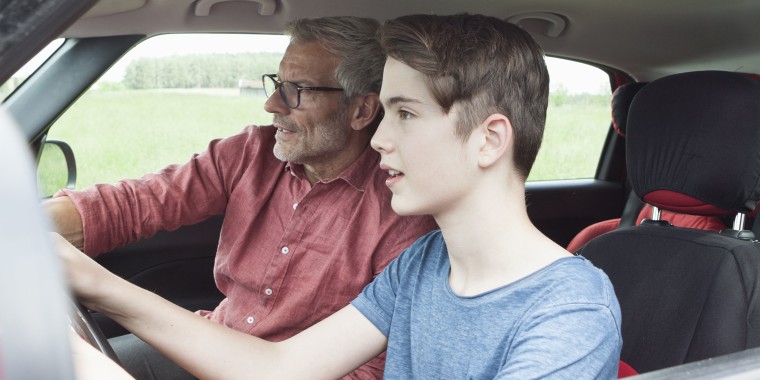During adolescence, children have a natural tendency to seek out and take risks. There is some evidence that your teen’s developing brain may play a part in this behavior. The regions of your child’s brain that seek sensation are developing quickly at this point, which essentially means your teen’s brain wants more things that make them feel good. At the same time, the area in the brain that controls impulses and evaluates risk is not yet mature. As a result, teens have a heightened desire for risk without the ability to fully understand the consequences. Heightened pleasure-seeking drives adolescents to experiment with drugs, alcohol, sex, and other risky behaviors. Even if your teen doesn’t appear to be a wild risk-taker, it’s still worth discussing risky behaviors with them. In 2013, the Centers for Disease Control surveyed teens about their risky behaviors and found at least 66 percent of high-schoolers had tried alcohol, as many as 40 percent had tried cigarettes, and 46 percent had engaged in sexual intercourse. It may be uncomfortable and difficult to talk to your teen about these behaviors, but your awareness and involvement can help your teen navigate these years.
Not all risk-taking is bad. In fact, taking risks is part of learning and growing up. You can help your teen with risk-taking by encouraging healthy risks. Examples include trying out for a new sport, asking a friend out on a date, volunteering locally or getting involved in an organization like Habitat for Humanity where they’ll get to volunteer and see other communities. Any time your child is exposed to something new, they take a risk, which leads to their continued growth and development.
Keep an open mind when talking with your child about risk-taking. Education consultant Jennifer Miller says your approach to conversations with your child can open or shut the door to your teen’s listening. Ask questions with an open mind and listen to your teen’s thoughts and feelings carefully. While you may have your own conclusions on sex, drugs and alcohol, Miller recommends remembering that your teen is likely getting their first experiences and opportunities to form their own thoughts on these issues. Ideally, you’d like your child to come to their own conclusions with your support. Your openness to discussion will show that you care and are approachable on sensitive issues and are there whenever they need to talk with you.
Know your high-schooler’s friends. While taking a risk is ultimately your child’s decision, knowing the people who are close to them and have a strong influence on their behavior will help you gauge what kinds of behaviors your teen may be up to when you’re not around. Of course not every friend who is into drinking or other risky behaviors will be able to convince them to join in, but the temptation can have an effect on your teen’s choices. Tom Hoerr, Head of School at New City School in St. Louis, recommends also reaching out to the parents of your child’s friends. Asking whether they allow drinking; if they have firearms in the house, and if they’re secured; and whether they’ll be home when the kids are there are all legitimate questions. Hoerr says some parents may react in an unfriendly manner, but your child’s safety is too important not to check.
Talk to your teen about the consequences of risky behavior. For example, alcohol use leads to impaired judgment, like driving after drinking, getting into a car with a friend who has been drinking, or feeling physically ill the next day. It can be hard to talk to your child about these issues, but the more you create an open conversation, the more influence you may have. Try to support your teen when they make good choices even when they're engaged in risky behavior. For example, if they are at a party and have had too much to drink or a friend has had too much to drink, let them know they can call you to pick them up, or offer to pay for a cab for them.
Parent Toolkit resources were developed by NBC News Learn with the help of subject-matter experts, including Thomas Hoerr, Emeritus Head of School, New City School; Judy Willis, Neurologist, Teacher, Author, International Lecturer, University of California, Santa Barbara; Jennifer Miller, Author, Confident Parents, Confident Kids; and Sean Slade, Director of Outreach, ASCD.
